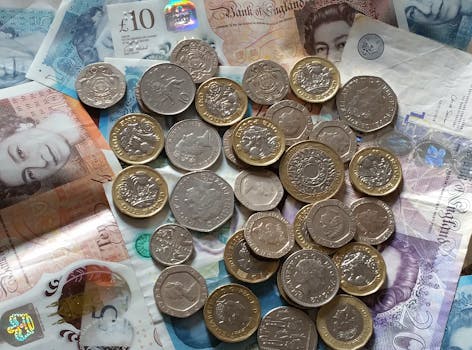
**
Pound Sterling Euro Forecast: Will GBP/EUR Fall to 1.1365? Expert Predictions and Market Analysis
The pound sterling (GBP) against the euro (EUR) has seen fluctuating performance recently, leaving many investors and businesses wondering about the future trajectory of the GBP/EUR exchange rate. Current forecasts predict a period of relative stability, followed by a potential retreat towards the 1.1365 mark. This article delves into the factors driving this prediction, offering insights into the complexities of the GBP/EUR exchange rate and exploring potential implications for travellers, businesses, and investors.
Understanding the Current GBP/EUR Exchange Rate
The GBP/EUR exchange rate reflects the relative strength of the British and European economies. Several factors influence its fluctuations, including:
- Interest Rate Differentials: The Bank of England (BoE) and the European Central Bank (ECB) interest rate policies significantly impact currency values. Higher interest rates generally attract foreign investment, boosting currency demand. The current divergence in interest rates between the UK and the Eurozone plays a crucial role in shaping GBP/EUR dynamics.
- Economic Growth: Robust economic growth in the UK, reflected in indicators like GDP growth and employment figures, tends to strengthen the pound. Conversely, weaker economic performance in either the UK or Eurozone can negatively impact the GBP/EUR exchange rate.
- Political Uncertainty: Brexit's lingering effects, coupled with political instability in either the UK or the Eurozone, can introduce volatility into the GBP/EUR market. Geopolitical events also influence currency trading.
- Inflation and Consumer Spending: Inflation rates significantly impact currency values. High inflation erodes purchasing power, potentially weakening a currency. The current inflation levels in both the UK and the Eurozone are key drivers for the GBP/EUR exchange rate.
- Market Sentiment: Speculation and market sentiment play a significant role. Positive news regarding the UK economy might boost the pound, while negative news could push it lower against the euro.
GBP/EUR Forecast: A Steady Period, Then a Potential Drop to 1.1365
Many leading analysts predict a period of relative stability for the GBP/EUR exchange rate in the short term. However, a longer-term forecast suggests a potential decline towards 1.1365. This prediction isn't etched in stone, and several factors could influence the actual outcome.
Factors Contributing to the 1.1365 Prediction
- Easing Monetary Policy: If the BoE signals a potential slowdown or pause in its interest rate hikes, it could weaken the pound relative to the euro, especially if the ECB maintains a more hawkish stance.
- Economic Slowdown: A potential economic slowdown in the UK, driven by factors such as high inflation and increased energy prices, could also contribute to a decline in the GBP/EUR rate.
- Geopolitical Risks: Ongoing geopolitical uncertainties, particularly concerning the war in Ukraine and its ripple effects on global energy markets, could create volatility and potentially push the pound lower.
- Technical Analysis: Technical analysis of the GBP/EUR chart suggests support levels around 1.1365, which could act as a magnet for the exchange rate if downward pressure intensifies.
Implications for Businesses, Investors, and Travellers
The predicted decline in the GBP/EUR exchange rate has important implications for various stakeholders:
Businesses
- Exporting Businesses: A weaker pound makes UK exports more competitive in the Eurozone, potentially benefiting exporters.
- Importing Businesses: However, a weaker pound increases the cost of importing goods from the Eurozone, potentially impacting profit margins. Businesses involved in international trade should carefully monitor the GBP/EUR exchange rate and consider hedging strategies to mitigate risks.
Investors
- Currency Trading: The predicted decline could present opportunities for currency traders, but it's crucial to remember that currency markets are highly volatile, and trading involves significant risk.
- Investments in UK and Eurozone Assets: The exchange rate affects the value of investments in UK and Eurozone assets for international investors.
Travellers
- Holidaymakers: A weaker pound means that holidays in the Eurozone become more expensive for UK travellers.
- Expatriates: Expatriates living in the Eurozone and receiving income in pounds will see their purchasing power reduced if the GBP/EUR rate declines.
Managing Exchange Rate Risk
Given the uncertainty surrounding the GBP/EUR forecast, individuals and businesses can take steps to mitigate exchange rate risk:
- Forward Contracts: These contracts lock in an exchange rate for a future date, protecting against unfavorable fluctuations.
- Currency Options: Options offer flexibility, allowing you to benefit from favorable movements while limiting losses during unfavorable shifts.
- Regular Monitoring: Stay informed about economic developments and market analysis to understand potential shifts in the GBP/EUR exchange rate.
Conclusion: Navigating the GBP/EUR Landscape
The forecast of a potential GBP/EUR decline to 1.1365 highlights the dynamic nature of the foreign exchange market. While predictions are not guarantees, understanding the underlying factors influencing the exchange rate is crucial for making informed decisions. By monitoring economic indicators, geopolitical developments, and employing risk management strategies, individuals and businesses can navigate the GBP/EUR landscape effectively. The information provided in this article is intended for informational purposes only and should not be considered financial advice. Always consult with a qualified financial advisor before making any investment decisions.




















